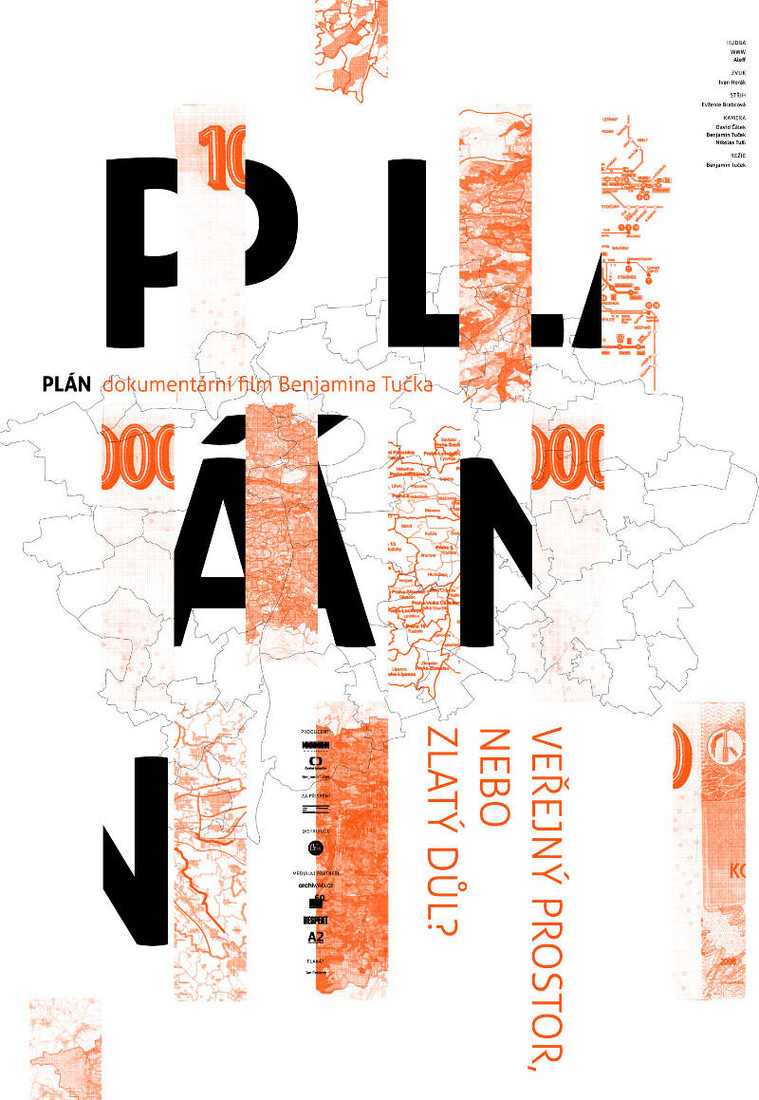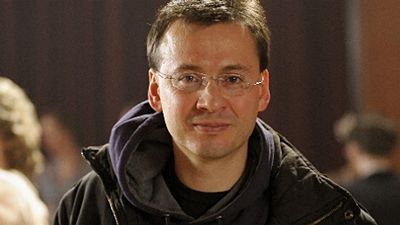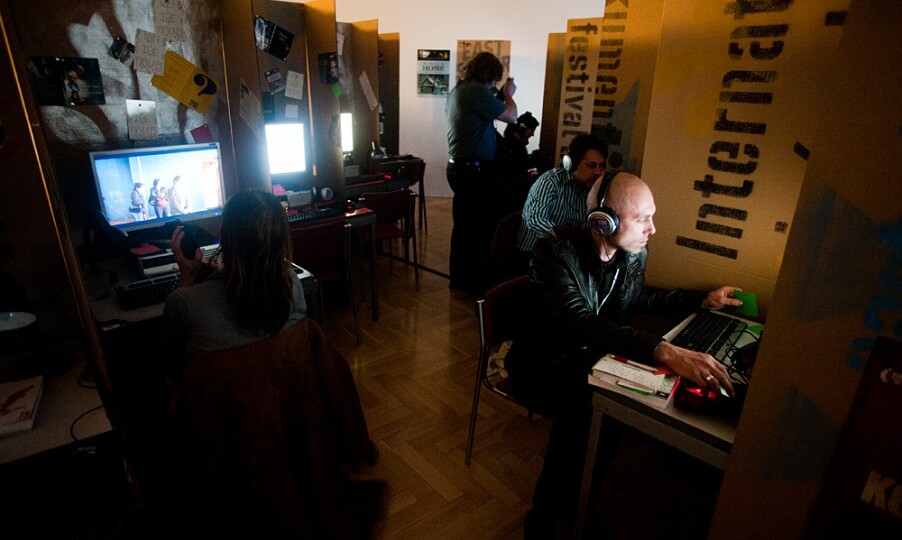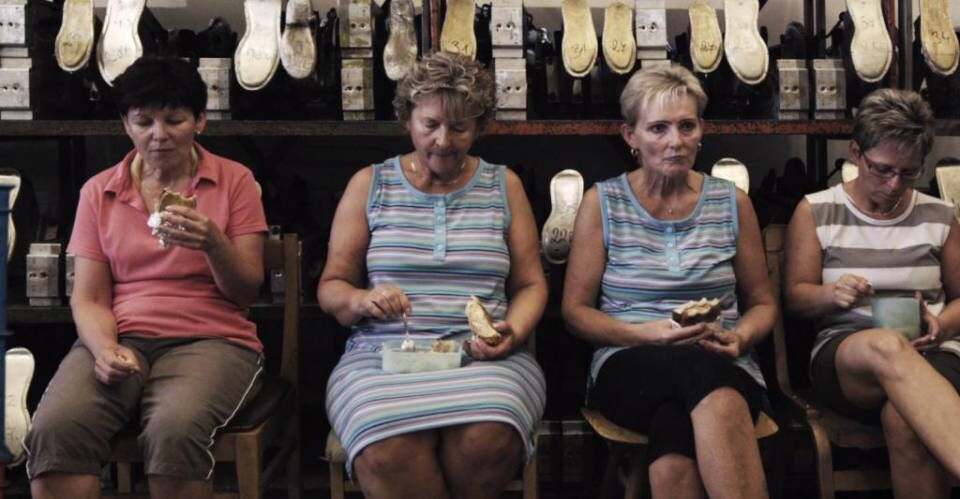Planned Hope
The film Plan (Plán) opens the door for discussion both within the documentary itself, and also outside the documentary world. It is based on personal experience and it creates the foundation for an active approach from citizens.
What circumstances led to you creating this movie?
The impulse to shoot the film came from an experience from where I live in Prague. An architecturally valuable, functionalist factory was sold to a private investor by the council. It was done without any public debate, without an attempt to find a new publicly beneficial meaning for the retired factory. The building was then sold several times and became a run of the mill development project, motivated only by the goal of the greatest profit, without any ambition to contribute to the improvement of the conditions at the place where it stands. After this experience I started shooting Plan. I was interested in finding out what and where things are being built and who is paying for it. What is the context in which we think when speaking about public space? How far does our imagination stretch when thinking of city development, our ability to participate in its development, who has what authority and responsibility?
The form of combining figures and effective shots of the city evoke the current ‘’trend’’ of promotional videos and video clips. Did you give special meaning to this formal approach of subtitle comments?
The subtitles of the film create the information platform. The collection and the verification of presented data took half a year. The subtitles save time; if someone was to say the numbers it would be boring and take much longer. They make up a graphic thread, carefully created and emphasized with music. Some of the data is so shocking and has such testimonial power that no further commentary is needed.
The film was featured not only in classic distribution, but also at various locations in Prague, where it was accompanied by expert discussion. Do you think the film has the power to change something?
The film has no ambition of changing the system, but it does set a mirror up to it effectively. In addition to distribution in Aerofilms cinemas, we held special screenings of Plan accompanied with discussion. We invited not only architects, but also city residents and the city council from where we filmed and screened. We immediately offered the film to be streamed on www.aerovod.cz. I believe it is good to accompany the film with such events. The journey of Plan around Prague had the character of a music tour.
The responses to your film were often motivated by the disagreement with the level of engagement your film had. Have you ever gotten a similar experience or is this the first time you ventured into ‘‘politics‘‘? What is it like for filmmakers?
This is the first time I am hearing about people disagreeing with the level of engagement. A film about city planning, corruption and public space can perhaps not do without some commitment! We are not living in Moscow in the thirties of the 20th century, when, as Mikhail Bulgakov conceived it, a big black cat would come and rip off the heads of liars. Films are not capable of doing this, although sometimes it would be for the better. In my previous movie Tantra (2010) I dealt with intimacy. The film, apart from other things, showed human nudity. In this sense I have had an experience dealing with sensitive issues, trying to make them available to viewers without any manipulation.
What is the message your film has for citizens living outside of Prague?
I believe that Prague perhaps represents a model, which can be found in many cities, only in modified forms. It is a set of building blocks, which we build ourselves by voting our council, the systems of controlling them and our own activity with which we participate in public administration. The widespread idea that it is not worth it to engage in public space, because there is nothing to gain is slowly disappearing. There is more than immediate profit at stake. We are offered the chance to live in an environment we like, know and care about. Indeed, it is high time: we have been given no other place to live and if we do not appreciate, care for it, we will soon lose it.
|
|
Benjamin Tuček (1972, Brno) studied screenwriting and dramaturgy at FAMU. In 2002 he created his feature-length surrealistic debut Girlie (Děvčátko). Some of his previous documentary titles include A Comedy (Komedie, 2001) and Tantra (2010). As a screenwriter he often cooperates with Marek Najbrt or Robert Geisler. |
This interview was published full-length in Czech in the Jihlava IDFF newspapers, dok.revue F02.
Translated by Floriana Skorulska




